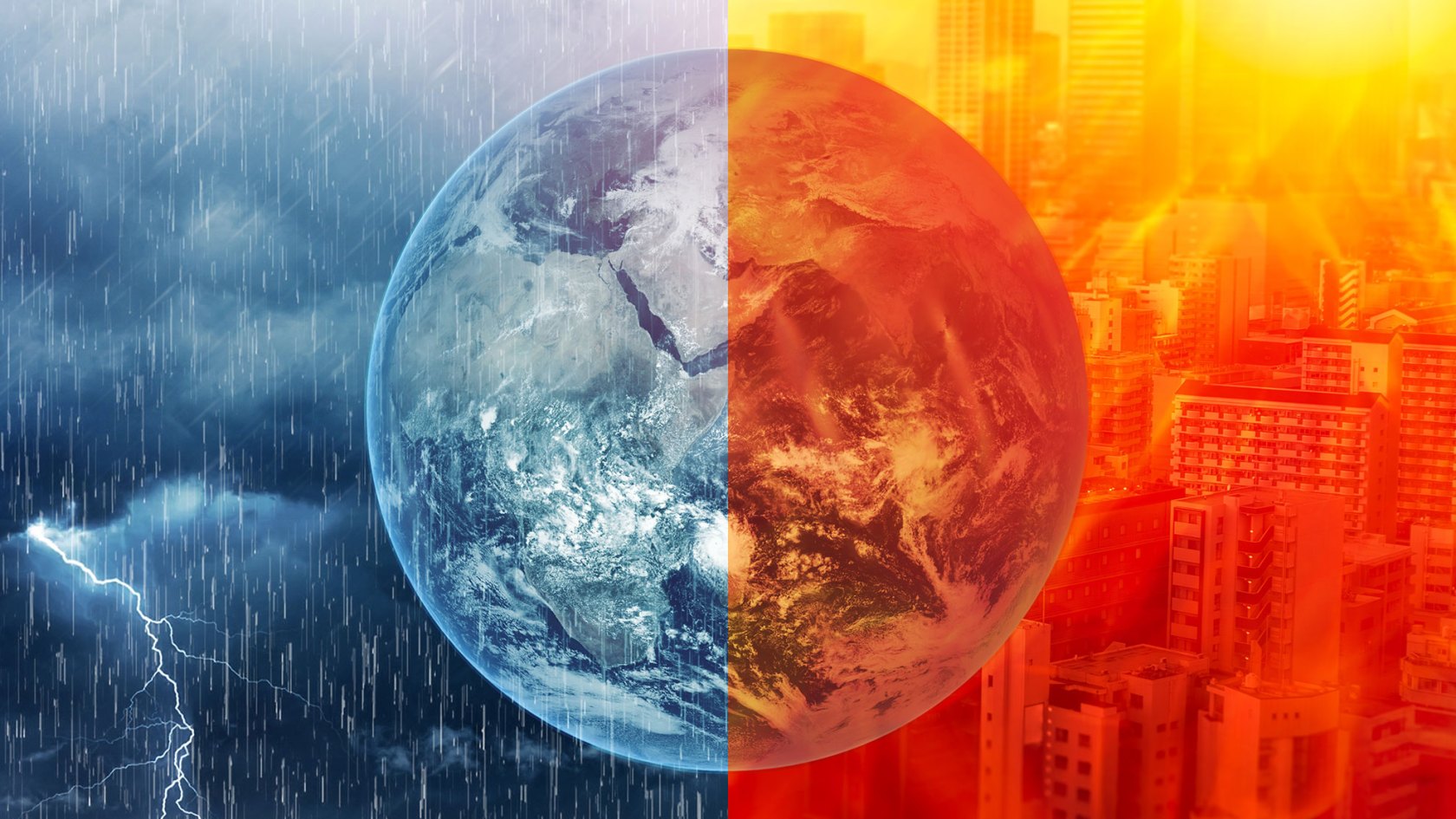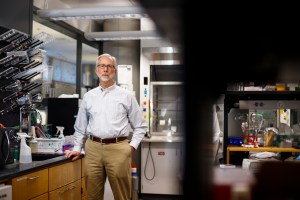‘We’re still standing … We can still do important work’

Climate researchers wrestling with losses of federal funding, data, and key tools
Recent federal funding cuts are hitting climate research hard. The losses will hamper progress, Harvard environmental scientists say, but they won’t stop it.
The Trump administration has cancelled millions in research grants, shuttered key climate monitoring programs, and made deep cuts to federal agencies that support environmental science. Researchers warn that the cuts could undermine America’s ability to respond to accelerating climate change.
“We’re caught in the crosshairs,” said Peter Huybers, chair of the Department of Earth and Planetary Sciences (EPS). But, he said, “We’re still standing. We still have fantastic people who are here. We have all these things to do, and we can still do important work.”
Environmental research was largely spared from the first round of federal funding cuts, which struck Harvard in early April and led to the University filing suit, arguing the government’s actions violate federal law and the University’s First Amendment rights.
Then a number of EPS researchers learned on May 15 that their grants, many of them through the National Science Foundation, had been targeted under a new round of cuts.
Elsie Sunderland, the Fred Kavli Professor of Environmental Chemistry and Professor of Earth and Planetary Sciences, lost a grant worth $578,882 to study permafrost melt in Arctic ecosystems and its impact on the global mercury budget. Amid the waves of funding halts, she said it was hard to know what would happen next.
“We don’t know what the landscape is and what future funding pipelines look like. A lot of the world right now is just pausing to see where we end up, and how long we have to brace ourselves,” she said.
David Johnston, whose lab studies the relationship between microorganisms and Earth surface evolution, had a grant from the NSF formally terminated, funds withheld from NASA, and one of his students lost an NSF Graduate Fellowship.
“The work of our entire team, including research staff, students, etc., will come to a near standstill. The future of our capacity to do science and make fundamental discoveries is highly uncertain,” said Johnston, who is also a professor of Earth and planetary sciences and co-director of graduate students.
Mary Rice is director of the Harvard Chan School of Public Health’s Center for Climate, Health, and the Global Environment (C-CHANGE), which studies potential solutions to the health consequences of climate change and fossil fuel pollution.
She lost a major National Institutes of Health-funded Center grant that she co-leads to address heat threats in vulnerable communities around the world, including a project to provide cooling units to older adults in Boston who are at risk of heat stress.
She also lost $500,000 in NIH funding for the final year of a randomized controlled trial testing the impact of clean air filters in the homes of people who have serious lung disease. Rice is determined to find a way to continue the work.
Stopping the trial early would be “a disservice, not only to the people who dedicated their time and their tissue, and went through all of this inconvenience to be part of the study, but it’s also a disservice to the American public and to the taxpayers who paid for the research, to the many people with COPD who could have benefited from the findings of the study,” she said.
But it’s not just the loss of grant funding. Researchers in climate science say they are also concerned about the loss of federal data and federally run analytical tools climate researchers rely on.
“The central missions and much of the important work of these agencies are being dismantled,” said Sunderland, listing the Environmental Protection Agency, the U.S. Geological Survey, and the National Oceanic and Atmospheric Administration. “This affects all of those collaborators, the data infrastructure, all of the work that they do. It’s a mess.”
Rice was alarmed by the Trump administration’s ending of EJScreen, an EPA-based mapping tool that helped researchers monitor parts of the country where vulnerable people were exposed to high levels of pollution.
Graduate student Alex Berry was developing novel methods to monitor food security via satellite imagery in southern Madagascar, where drought has left about 1.6 million people dependent on food aid. Her research involved comparing satellite images of farmland with live reports from the ground. But the on-the-ground data collection was run by Catholic Relief Services, which was funded by the now largely dismantled USAID.
“We’re no longer getting that live data,” Berry said. “The Madagascar project has been completely shut down.” Plans to expand the project to Ethiopia and Madagascar have been scaled back and may not proceed at all.
Global surface temperatures in 2024 were 2.3 degrees Fahrenheit above the 20th-century baseline, topping the previous record set in 2023. It’s an unprecedented heat streak; in some parts of the world, it’s regularly stretching the upper limit of what the human body can tolerate.
EPS head Huybers, who researches how climate change affects agricultural output around the world, said his department is pivoting to preserve critical work. He got as much data on global food insecurity as he could from USAID and is carrying forward some of their work.
“We are putting together a global database of agricultural yields at the subnational level and plan to release a publicly available version soon,” he said.
Despite the many setbacks, EPS researchers say they remain committed to the work.
“I think it is our responsibility right now to document the harm that is being imposed, both on the environment locally and globally, and then on public health,” Sunderland said. “I don’t actually feel depressed about this. I feel like we have an obligation to speak out and talk about it, and then really keep doing our work.”





